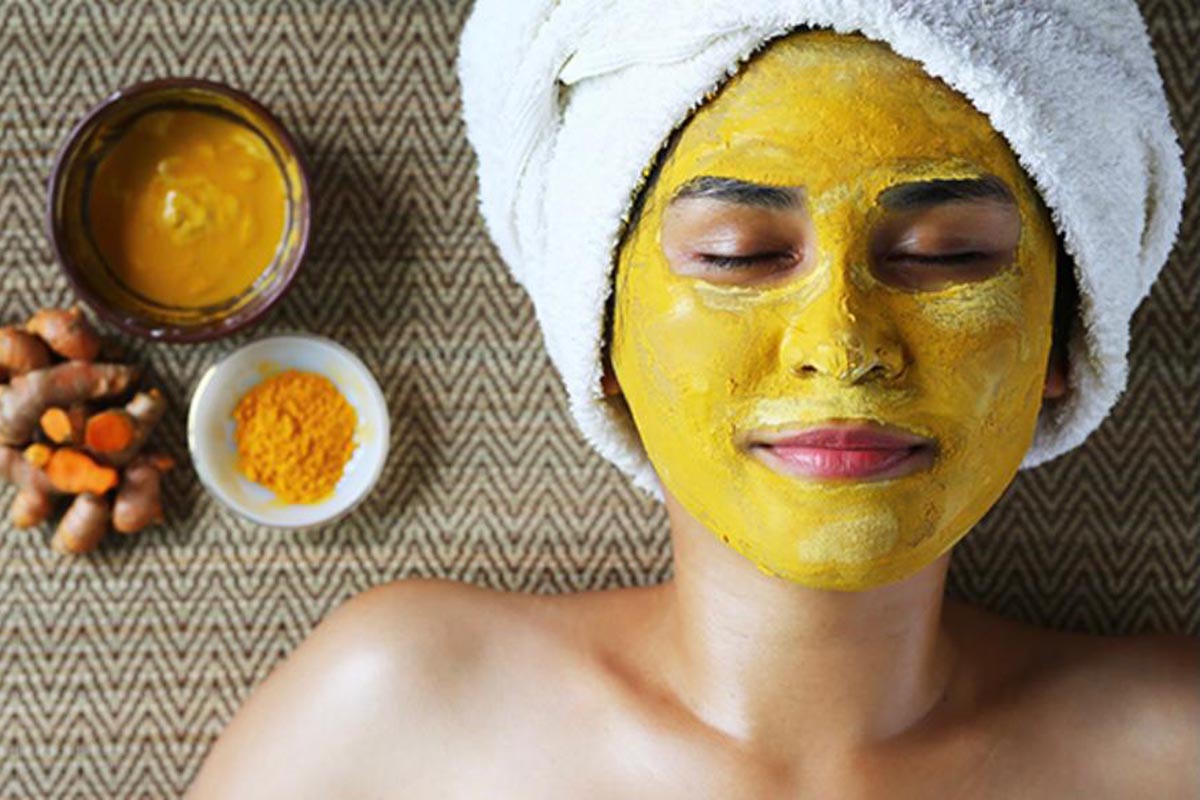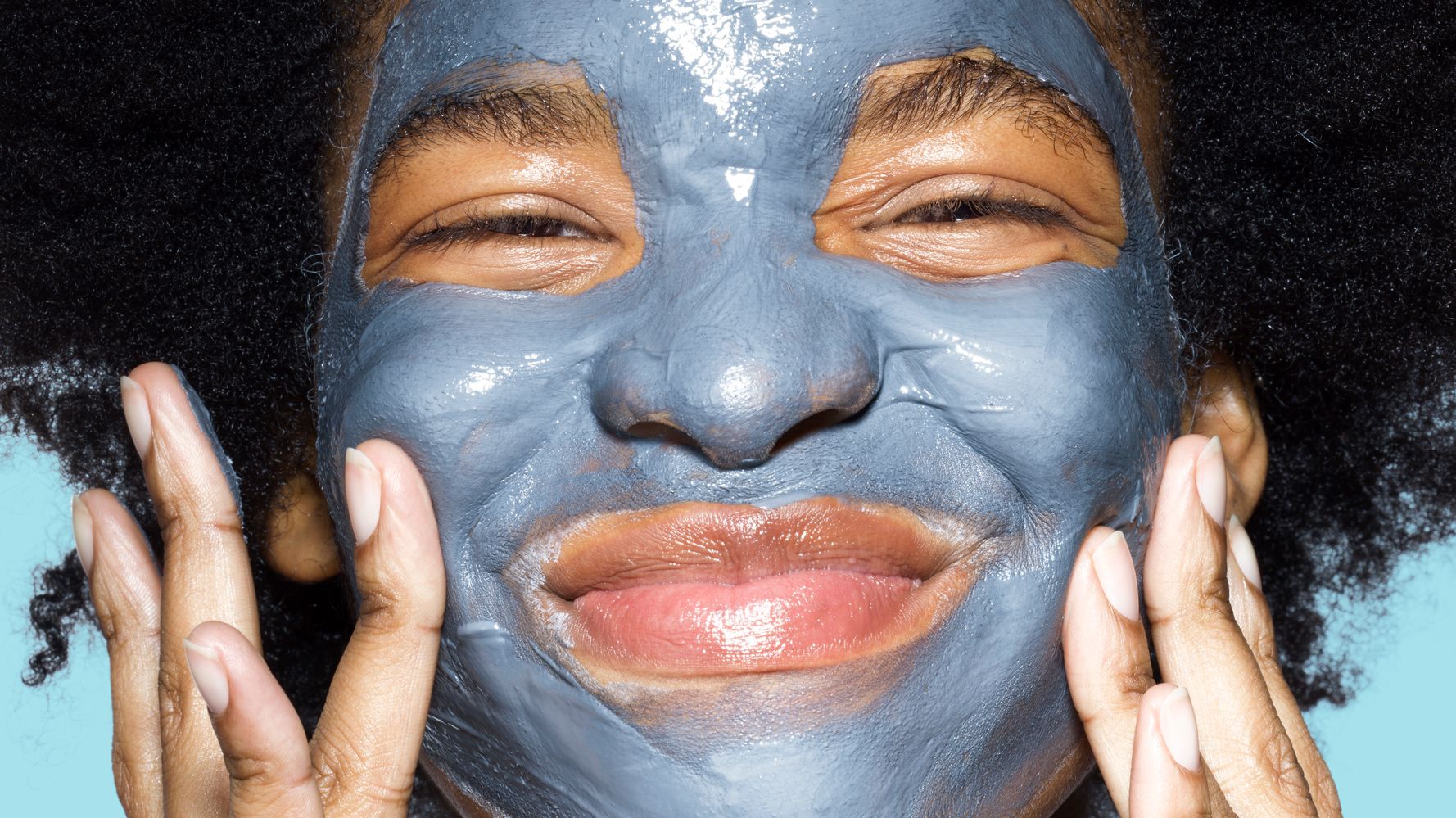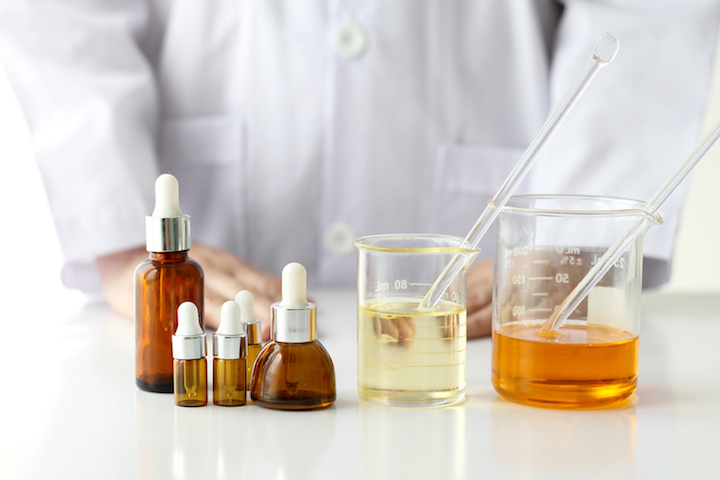Please Don’t Do It To Yourself: DIY Skincare and The Natural Preservatives Myth

Whether you dabbled in DIY skincare during the pandemic thanks to the incredible boredom induced by staying at home or wellness YouTube got to you before that, the online encouragement to raid the kitchen cupboards has led us to believe DIY is the way to better skin.
Making your own skincare products with ingredients readily available at home is marketed as a productive way to use your free time, have some teenage sleepover-like fun, and give the skin some natural goodness. The at-home ingredients are said to be ‘better’ due to the lack of chemicals and other ‘harmful’ ingredients, but they often cause more harm than good.
If you’re planning on DIY’ing your skincare, there are some ingredients you definitely want to avoid. Coffee granules and salt, a staple of DIY scrubs and face masks, should be avoided at all costs. While they give skin an instant smoothing effect, harshly rubbing your skin with them too often could compromise the skin’s surface layer, opening it up to bacteria and possible infection. Sugar is a much safer option but should still be used with caution. Scrubbing your face for long enough with anything is likely to damage the surface layer. Instead, be gentle with your motions and ensure your face is liberally soaked with water to lubricate the skin.

Lemon, another popular DIY ingredient, is used to reduce pigmentation. In reality, it will cause irritation leading to redness, and if applied on the skin before exposure to the sun, you could experience extreme redness and even blistering. Similar effects can be caused by vinegar; irritation, white spots, sunburn, and, if applied often, superficial burns can all occur as a result of putting the chip shop staple on your skin.
While prevalent in tooth whitening products, baking soda should not be put on the face. The ingredient will affect the normally acidic pH of the skin, impairing the skin barrier and causing dryness, irritation and breakouts. But hey, if the baking soda you put on your face breaks you out, you can always put some toothpaste on the spots, right? Toothpaste’s main ingredients are peroxide and yet more baking soda. It might dry out the acne and temporarily decrease inflammation, but you’ll be left with scarring and pigmentation.
If the risk of salmonella isn’t enough to discourage you from putting raw egg onto the face, doing so will cause the skin to pull, making it very sensitive and causing breakouts, blisters and scars.
The DIY chemical peel was a horrific moment for DIY skincare. Recipes online encouraged people to put ‘natural liquid meat tenderiser’ around the eyes or crush up 12 paracetamol and mix the powder with glycolic acid to give naturally smooth skin. While these are wild ingredients, it’s the act of combining them with acids that causes the damage here. Putting acids on your face, even those meant for the skin, alongside untested food items can create hyperpigmentation and discolouration that can, especially for darker skin tones, be hard to reverse. The best-case scenario after a DIY chemical peel is that your dermatologist can fix the damage you’ve caused.
It’s true that the ingredients you find in your kitchen can be similar to the sort of ingredients you find in skincare products. The difference is those ingredients are formulated with other elements that complement and work alongside one another. For one, store-bought skincare products are formulated with preservatives. You’ve probably heard the word in adverts or seen it plastered on cosmetics bottles without really knowing what preservatives are or what they do.

In both skincare and cosmetic products, preservatives prevent bacteria from growing by killing microbe cells and creating an environment where it’s difficult for bacteria to spread. Almost all skincare products need preservatives because of their high water content. The presence of water, especially the high water content in hydrating products, makes it likely for waterborne bacteria to contaminate the whole product. A preserving agent is necessary to protect the product from bacteria.
Preservatives in skincare are inevitable. The delicate nature of the skin we wish to care for means delicate formulations must be made and maintained. Skipping preservatives would mean a product wouldn’t remain the way the scientists formulating it intended, and the health hazards of that are not worth thinking about. The bottom line is if you want your skincare to work, and you don’t want mould or bacteria in your moisturiser, you want preservatives.
Homemade products don’t have preservatives in them. If you’re regularly using DIY products sans preservatives, you may face health issues through ingesting harmful microbes that have formed in the product over time. Even if you’re careful not to put the product around your mouth and eyes, spreading this bacteria and mould around the skin can lead to bacterial skin infections and acne. Assuming these are the issues leading you to DIY skincare, it seems a bit bittersweet.
Some DIY, and even some ‘all natural’ products, claim that antioxidants, such as vitamin C and vitamin E, act as a preserving agent in place of their chemical counterparts. While these ingredients have many benefits for the skin, the claim they preserve the product isn’t true.
Antioxidants combat oxidation, a natural, chemical reaction in which molecules lose their electrons. Oxidation is mostly impacted by heat and light – this is why we saw skincare fridges make a brief appearance a few years ago. We see oxidation most obviously in fruit. You cut up an apple and come back to find it starting to turn brown. The fruit being exposed to oxygen has biologically changed it. For our skincare, oxidation means your product may go ‘off’, not be as potent, and be less effective.

While they fight against oxidation, antioxidants don’t prevent bacteria, fungi, yeast or mould from spoiling skincare. Preservatives are the only thing that keep your skincare from going out of date within three or so days of purchase. However, there are some preservatives you may want to avoid.
- Parabens, which can disrupt hormones in the body and cause skin irritation.
- Diazolidinyl Urea, which has carcinogenic (cancer-causing) properties and side effects like skin irritation and allergies.
- Benzyl Alcohol, which is known to irritate and dry out sensitive skin.
In place of these less than attractive preservatives, look for Sodium benzoate, Phenoxyethanol or Propylene Glycol, which are non-toxic, non-irritating when diluted, and have proven microbial properties.
At the end of the day, store-bought skincare products are formulated for the face. They contain chemicals and other ingredients that are scientifically proven to work with the delicate skin on the face and have been created through research and trials to control problems from which we may suffer. DIY skincare isn’t.
Most of us aren’t scientists or skincare specialists. Most of us won’t find skin-friendly products in our kitchen cupboards. If you’re gagging for some DIY skincare, buy some mask powder that you have to mix with water in order to use, that’s about as DIY as skincare should ever get.
Discover more from GUAP’s Fashion section here




![ZINO VINCI’S ‘FILTHY & DISGUSTING’EP BRINGS YOU TO THE CORE OF THE ARTIST [@ZinoVinci]](https://guap.co/wp-content/uploads/2023/10/Zino-4.jpg)



